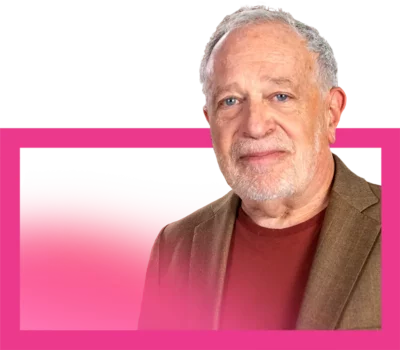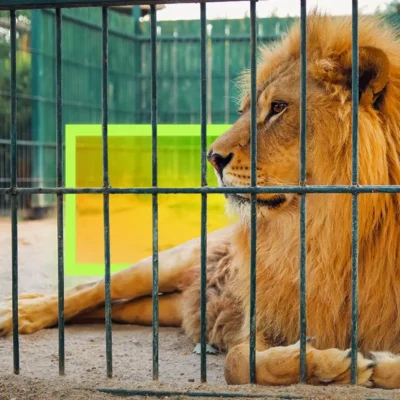The accounting of this parenting business
It’s 1996, and Robert Reich has the job of a lifetime – one that’s taking a steady toll on his family. In a story he’s never told before, Reich shares the pivotal moment when he turns his economist’s eye on his own life, and realizes: It’s fallen out of balance. On a muddy cross-country field, watching his older son run through the rain, he realizes what he must do to fix things.


Table of Contents:
Transcript:
The accounting of this parenting business
ROBERT REICH: From the very beginning I’ve made a point of being there for everything. Attending every play and game and birthday party. Determined not to let my children miss me the way I missed my dad.
But then my old friend Bill is elected President of the United States, and I’m on an airplane flying home to spend just two days with the young people I cherish most.
The plane tilts slightly, and we begin our descent into Logan. The cabin lights flicker on, magazines are stuffed into bags, and Boston comes into focus below. In 20 minutes we’ll be on the ground, and tomorrow morning I’ll be doing what I never thought I’d be coming home to do: Watch my older son run away.
ROHAN GUNATILLAKE: Robert Reich is an economist, professor at UC Berkeley, political commentator, and the author of 18 books. Presidents Ford, Carter, Clinton, and Obama all called on Reich to serve in their administrations. You may remember his service as Secretary of Labor from 1993 to 1997 when he became best known for implementing the Family and Medical Leave Act, increasing minimum wage, and focusing national attention on the need to help American workers to adapt to the new economy.
In today’s Meditative Story, Robert shares a story he’s never told publicly. It’s about competing senses of responsibility to have a lasting impact in the world. It’s about making our time in this world count. In Robert’s case, it’s a choice between fathering two boys and his term of service for President Bill Clinton.
In this series, we combine immersive first-person stories and breathtaking music with the science-backed benefits of mindfulness practice. From WaitWhat, this is a Meditative Story. I’m Rohan, and I’ll be your guide.
The body relaxed. The body breathing. Your senses open. Your mind open. Meeting the world.
REICH: I make my way down the plane’s narrow aisle, another weary man in a rumpled suit leaving Washington for the weekend.
Washington to Boston, work world to family world. The flight is just an hour and a half, but it’s steeped in banal ritual. I take my seat, nod a greeting to whoever’s beside me, try to hold space on the shared arm rest. In time, we’re rocketing down the runway – a moment I mark to be the official departure from the week behind. The lights dim, the cabin goes quiet in that reverential way cabins do, and then we’re lifting into the night sky.
Commute home every weekend and eventually you stop watching the city recede below. I close my eyes.
I’ve held jobs of consequence before. But I have never run a federal agency of nearly 20,000 employees, with a $35 billion budget. The ability to change the lives of millions of Americans for the better is in my grasp. People assume my job as Labor Secretary is all about dollars and cents, and of course that’s partially true. But at its heart it’s about time – time – improving the hours and days and years lived by American workers. America is coming out of a deep recession. Even if they’ve got jobs, most workers haven’t had a raise in years. I have taken this job because life has become perilously difficult for working families.
The Department of Labor has sprung to life. Despite strenuous opposition from the House and Senate, millions of American workers now wake up to their first minimum wage raise in years. Now, if a parent or child becomes sick, they can take out 12 weeks and get their job back; It’s still unpaid leave, but it’s better than no leave at all. Achieving victories like this is grueling and all-consuming and occasionally dispiriting, and it’s the most wonderful job I can imagine.
This is not the image of work I grow up with. When I’m a kid, my dad has a women’s clothing store and is not terribly successful. He’s always nervous about making enough money, always consumed by his work.
I remember him as this tall, handsome man with a deep voice and a strong New York accent. Thin, fastidious, with a widow’s peak and always a hint of aftershave. A great dancer and a kind man. He takes seriously his role as the family provider. He works very, very, very hard.
I see him forever taking piles of women’s clothing from one store to another, trying to gauge where they would be most likely to sell. When he isn’t doing that, he’s bent over the books, adding up the numbers, or buying from wholesalers. Often he’s on the road for hours. Dinner is always late. Finally I hear the handle turn and watch him walk through the front door, pained and sad. His stomach frequently hurts from all the pressure.
Sunday mornings are a blessed reprieve for him. I see him sitting in the living room of our small house, still in his faded pajamas, feet in his old faux-leather slippers. The couch sits against the window, the sun coming in over his shoulder, warming the newspaper in his hands. This is the only time of week he’s free from anxiety.
As a young boy I want desperately to be held by him. I’m too young to understand why he needs this time to himself. I just understand that if I grab this pajama leg here, I can hoist myself up onto his knees, and make my way into his lap. I tuck myself between him and the crinkling pages of his paper. Then he folds the paper, puts it aside. I feel his hands lifting me, kindly, picking me up and putting me down on the floor. I do it again – crawl up onto his lap – and again he gently puts me down on the floor. There’s nothing to do but sit there, wanting to be with the father who’s right in front of me, but dismissed each time I make the climb.
Now I’m a father with boys of my own. They’re too old to climb into my lap anymore, but still young enough to want me around. From the very beginning I’ve made a point of being there for everything. Attending every play and game and birthday party. Determined not to let my children miss me the way I missed my dad. But then my old friend Bill is elected President of the United States, and I’m on an airplane flying home to spend just two days with the young people I cherish most.
The plane tilts slightly, and we begin our descent into Logan. The cabin lights flicker on, magazines are stuffed into bags, and Boston comes into focus below. In 20 minutes we’ll be on the ground, and tomorrow morning I’ll be doing what I never thought I’d be coming home to do: Watch my older son run away.
GUNATILLAKE: The landing of a plane, the force of deceleration on the body making us lean forward. The landing of a plane, the mind skipping away to what we need to do to get to where we’re headed. Notice the balance or imbalance in your body. Any momentum of your own mind.
REICH: It’s a chilly and rainy Saturday morning in the woods near Cambridge. A New England autumn downpour has an aroma all its own, rich, loamy, dank. The smell of the leaves mingles with the mud and the wet in a way that makes everything feel alive, and everything feels like change.
At 17, Adam has blossomed into a long-distance runner. He’s tall and thin with long, graceful legs made for covering mile after mile. Being in Washington these past few years has meant missing most of his cross-country meets. He’s a senior now. He asks me to be at this one – one of the last before he heads to college.
The two of us stand under a grove of trees, angling for shelter. The other boys arrive one by one, and he wanders over to greet them – everyone drenched at this point, and the race hasn’t even started. As they gather into position, I wish Adam luck. What he enjoys most is the run itself, the physicality, the exertion of it. I’m happy that he finds this sport. And then a horn blares, and he’s gone.
Suddenly I’m alone, the morning silent but for the rain. I’m the only parent here; even the regulars skipped this one – it’s a full-on deluge. I’m sopping in my parka, huddled to stay warm. There is nothing to do but get soaked, smell the mud and leaves and the coming winter.
Since I took the job in Washington, the chatter in my head can intrude, in an internal dialogue about some upcoming meeting, some new strategy, maybe replaying a recent interview. But standing here in this downpour, something different happens. Instead of being held hostage to this voice in my head, I just … stand here. There’s a certain irony in making this trip essentially to watch Adam dash away from me. But that’s what I do. And that’s what he’s doing – not just today, into the woods, but in life. When your kids are very young, the days are interminable; getting their shoes on takes an hour. Then you look up, and they’re driving, thinking about college. In no time he’ll be out of the house, a man, up and running. I’ll be left standing there, not unlike now, wishing I’d had more rainy mornings with him.
And it also happens with my younger son, Sam, but in a different way, just as suddenly. I’m home for the weekend, Sam is in his bed. He’s on the cusp of adolescence. I walk over to say goodnight before heading out for the evening.
“Dad,” he says. “When you get home, can you come tell me?”
“Well that’s silly,” I say. “It’ll be late, you need your sleep – I’ll just see you in the morning.”
But then something happens. Sam’s big blue eyes begin to fill with tears. I look at him, stunned. I ask why it’s so important to him.
“I just want to know that you’re home with me, in the same house,” he says.
And so, a few hours later, I tiptoe back into his room, kiss his forehead, and tell him goodnight. I’m not sure it even really registers for him. But it does for me.
GUNATILLAKE: I love the real delicateness here. A touch so light but known at the same time. Is there a memory from your own life that comes to mind now? However quiet, however charged, invite it in. And drop into it. Let go into it.
REICH: The number of bedtime kisses you deliver, the number of skinned knees you tend, the number of cross-country runs – they feel like they’ll never end, but that’s precisely what they do. Numbers are my stock in trade. The accounting of this parenting business is this: Realistically, I’ll make a dozen more peanut butter sandwiches for my kids, maybe a dozen and a half. But the number is finite. Get your head around this gloomy math and suddenly there’s a question you can no longer avoid, can no longer shrug off. What am I doing?
The slap of sneakers hitting wet earth echoes in the distance. In a few moments, with a flash of color, Adam emerges through the wet trees, drenched, exhausted, grinning. In a few minutes we’re back in the car. On the ride home we discuss the details of his run, while in my mind a new clarity snaps into place.
The first time I meet Bill Clinton, it’s in a doorway. We’re both Rhodes Scholars, on our way to Oxford, on a boat in the North Atlantic. I’ve gotten seasick, and I’m barely holding it together in my cabin when there’s a knock on my door. I open it to find this tall, lanky guy from Arkansas standing there, an offering of chicken soup and crackers in his hands.
Now, nearly three decades later, I’m standing in his doorway at the Oval Office. I’m back in Washington just a few days since being home for the weekend, though I feel like I’ve been waiting for this moment for a long time, and most urgently since the race. Bill is seated at the massive Resolute Desk, framed by the tall windows behind him, gold silk curtains gathered at their edges.
“Can I have a word with you?” I ask.
“Sure,” he says.
And before I know it, I’m describing Adam’s cross-country meet. The realization that while I’m here in DC, Adam and Sam are readying for the next stage of their lives. I am talking, once again, about time. I need to change the math. I need to resign.
In the weeks that follow, I deliver the news to many others, too. Almost to a one, they nod, and then quietly ask, “What’s the real reason you’re leaving?” It seems to me a kind of sexism, to doubt that a man decides to step away from a successful career to spend more time with his family. Bill understands. He tells me he’ll miss me, and I thank him. I turn around, walk out the Oval Office, and down the hallway of the West Wing. A lump already rising in my throat, I am profoundly sad, and even more profoundly happy to have made this decision.
Two weeks before my father’s 102nd birthday, I visit him. He’s in bed, frail, a shadow of the towering figure I grew up with. I curl up next to him and put my arms around him.
“I love you, Dad,” I say, and I kiss his forehead.
In his soft voice, he replies.
“That’s unusual.”
“What’s unusual?” I say. “I love you.”
“We were never,” he says, “a very demonstrative family.”
He dies not long after that. Those words catch, not because he wasn’t a warm and loving dad. In most ways he was. But his ability to express that love was limited, as it is for so many fathers or mothers for that matter consumed by work, or worry, or whatever else pulls them away from the people who need them the most.
I’m lucky. I left the Clinton Administration and had a few meaningful years with my boys before they left home. And now they have families of their own. I don’t regret leaving Washington for an instant. What I really regret is how little time there is in this cross-country race.
Rohan’s closing meditation
GUNATILLAKE: I don’t know what came across most for you in Robert’s story, but for me it was something about letting go. His role in the Clinton administration may well have been the pinnacle of his professional life but he chose to let it go to make space for other things.
Renunciation is a word that can feel very out of date, harking back as it does to images of monastic lifestyles and medieval austerity. And while that was definitely part of the mindfulness tradition back in the day, there are ways to bring renunciation, to bring letting go into our modern lives. So let’s play with that for our short closing practice together.
And if it’s possible for you and doesn’t sound too weird, ball one of your hands up into a first. Tucking your thumb in if that’s comfortable.
Keeping the hand tight, notice the power here. The strength of your grip. It’s potential.
Now let it go. And notice the release that comes with that. Palm up. Still able to hold the world, but now free.
Try that again a couple of times if you like. Dropping your awareness into your hand and knowing the difference between holding and freedom. Between tension and lightness. Really dropping into that if you can.
Another aspect of Robert’s letting go was what he was letting go into. The warmth of family life, supporting his boys, being there. Being there for the small and the big stuff. Being there to watch the change. So for the second half of our meditation, let’s do a bit of that.
Breathing deeply. Letting the shoulders and hands and jaw be soft. Letting the eyes be soft. Taking as long as you need to notice where in the body there is some warmth or pleasant sensation. For me right now it’s in my face, my cheeks. Finding whatever area of the body feels most warm, however slight. And dropping into it. Letting go into it.
Giving yourself permission to really enjoy the sensations here. Allowing them to radiate and infuse the mind. Letting go into this. And letting go of anything else that is not this.
Letting go. And letting go.
At the start of this meditation we talked about how renunciation is to let go of extraneous things in your life, and in the doing, free up space – mental, physical and emotional, to allow you to focus more on the things that most make a difference to you.
So if you’d like to explore that as a theme for your week before we next meet, try giving something up. It can be something physical such as a certain food or an activity. Or it can be something mental or emotional such as a regular thought pattern or habit.
Then, most importantly, notice what happens – do you feel more free? Is there resistance to the renunciation? What can you learn from the friction of the process?
It could just be a tiny thing. What matters is that we start to test our boundaries of what we really need to hold onto and gain insight from how it feels to let go.
And if it’s not for you, then that’s fine too. Letting go of yet another thing to do. I get it.
Either way I’ll leave you now.
So thank you again Robert, and thank you.
Stay safe, stay well.






